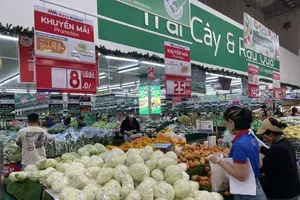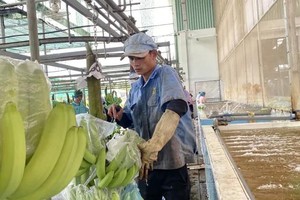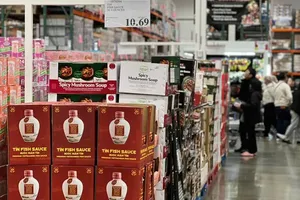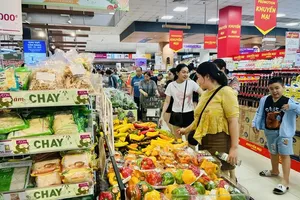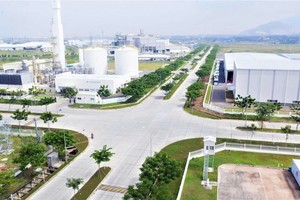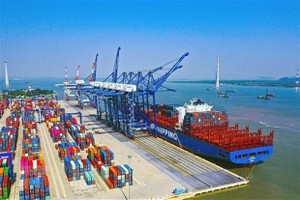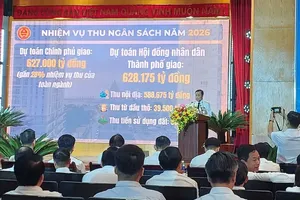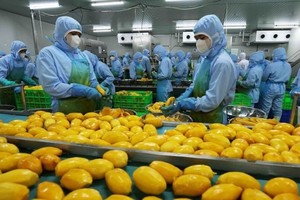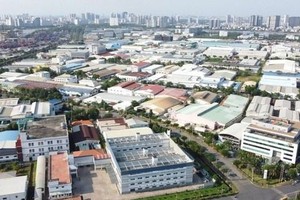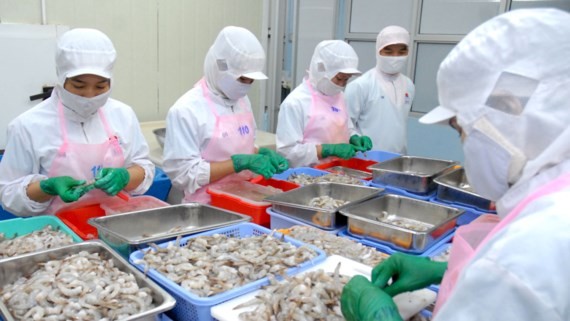
Talking about the issue, Commercial Councilor Dao Tran Nhan, head of Vietnam Trade Office in Washington D.C, said that three months ago, the office advised food and beverage companies to reexamine their business codes before exporting to the US to suit FDA’s regulations.
According to the recommendation, since 2017 FDA has changed verification method to grant new business codes and stipulated that after being chosen, representatives of Vietnamese production establishments in the US must send the administration a letter or document confirming that they agree to be the representatives.
If FDA does not receive the letter or the document, representatives’ registration to the administration will be considered to be incomplete and business codes will be destroyed.
Previously, the Vietnam Trade Office in the US continued advising Vietnamese businesses to re-register production establishments and representatives in the US with FDA in September 2012, September 2014 and August 2016 in accordance with the FDA Food Safety Modernization Act.
Mr. Dao Tran Nhan affirmed that the act is not new as former US President Obama signed a decree to issue it on January 4, 2011.
Right after the US issued the act, the office has sent all relevant regulations and reports to Vietnamese authorized agencies including the Ministry of Industry and Trade and the Ministry of Agriculture and Rural Development.
In addition, the office proposed the later ministry to carefully study the act to guide Vietnamese firms, invite experts from the US to attend forums and training courses about new regulations of the act to prevent export consignments from being congested or withdrawn in the US.
The office has also put the Food Safety Modernization Act in quarterly reports, six month, nine month and yearly reports to the Ministry of Industry and Trade since early 2011 till now.
In February 2017, the office has supplied information about the act in a book guiding export markets published by the Export Import Department under the Ministry of Industry and Trade.
Therefore, the Vietnam Trade Office in the US has been well aware of its responsibilities to regularly supply information, guide and warn businesses about policy and regulation changes in commercial and export import fields at the local market for the community of domestic enterprises.
Businesses don’t know
However, businesses said that they have been unable to access the above warnings.
Ms. Vu Kim Hanh, chairwoman of High Quality Vietnamese Goods Association, said that since early 2017 many Vietnamese businesses have been denied to export to the US but they don’t know reasons. Of these, some companies have exported to the US for the last ten years.
The association has sent a delegation of experts to directly work with FDA and was informed that there are changes in the Food Safety Modernization Act. Afterwards it has sent a document about the law’s changes to some ministries but they seem to be unclear about that.
Ms. Hanh said that the association has worked with FDA and consulting firms to build a set of norms for Vietnamese goods to meet integration standards. In the upcoming time, it will organize training courses to help enterprises improve production activities and complete legal procedures to solve technical barriers when exporting to the US.
A representative from HCMC Food Association said that so far the association has yet to receive any warning from relevant agencies about new changes as well as advises to prevent them from falling into the export ban list in the US.
Some production establishments even don’t know that business codes registered with FDA have been destroyed and no longer valid so they have kept shipping goods to the US. As a result, their goods were not permitted to enter the market or forced to be destroyed.
Worse, some export companies have been penalized and prosecuted for conducting a banned action contrary to the US law.
The issue shows that the role of relevant ministries specifically the Ministry of Industry and Trade and the Ministry of Agriculture and Rural Development is very faint in giving businesses warnings and market orientation, said the representative.
To reduce risks for firms, Mr. Pham Thai Binh, director of Trung An Rice Company, said that a specific ministry should be tasked to establish an information page about market changes domestically and abroad.
The page will supply information and give warnings in a timely manner to ensure that businesses can have a roadmap to change their production and trading activities as well as grasp necessary procedures to adapt to changes in the market.
Besides, authorized agencies should regularly organize seminars and training courses to update regulation changes for businesses and associations.
Businesses themselves should take the initiative in working with market consulting companies in Vietnam to catch up with new regulations as well as relevant procedures to minimize risks in export import activities.

